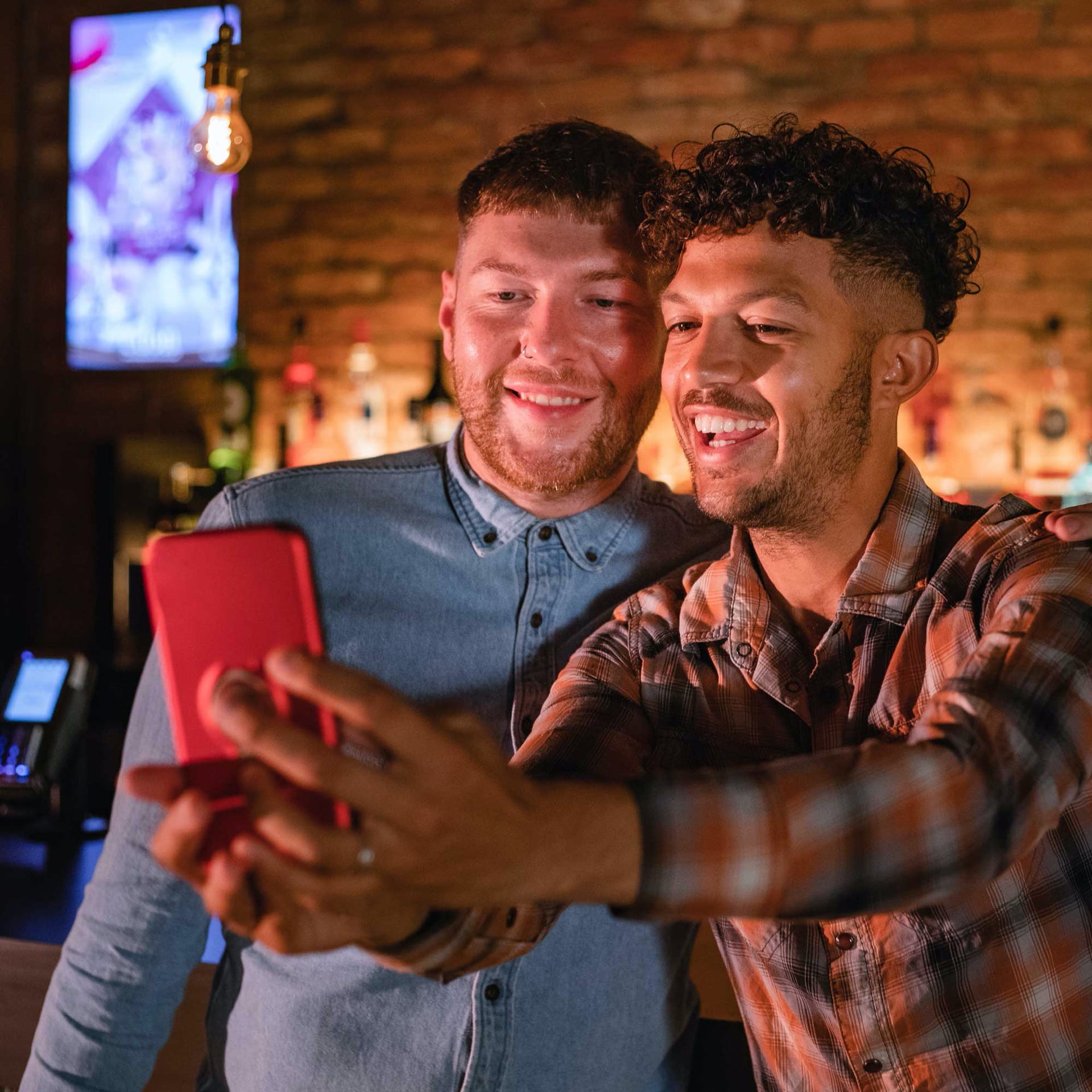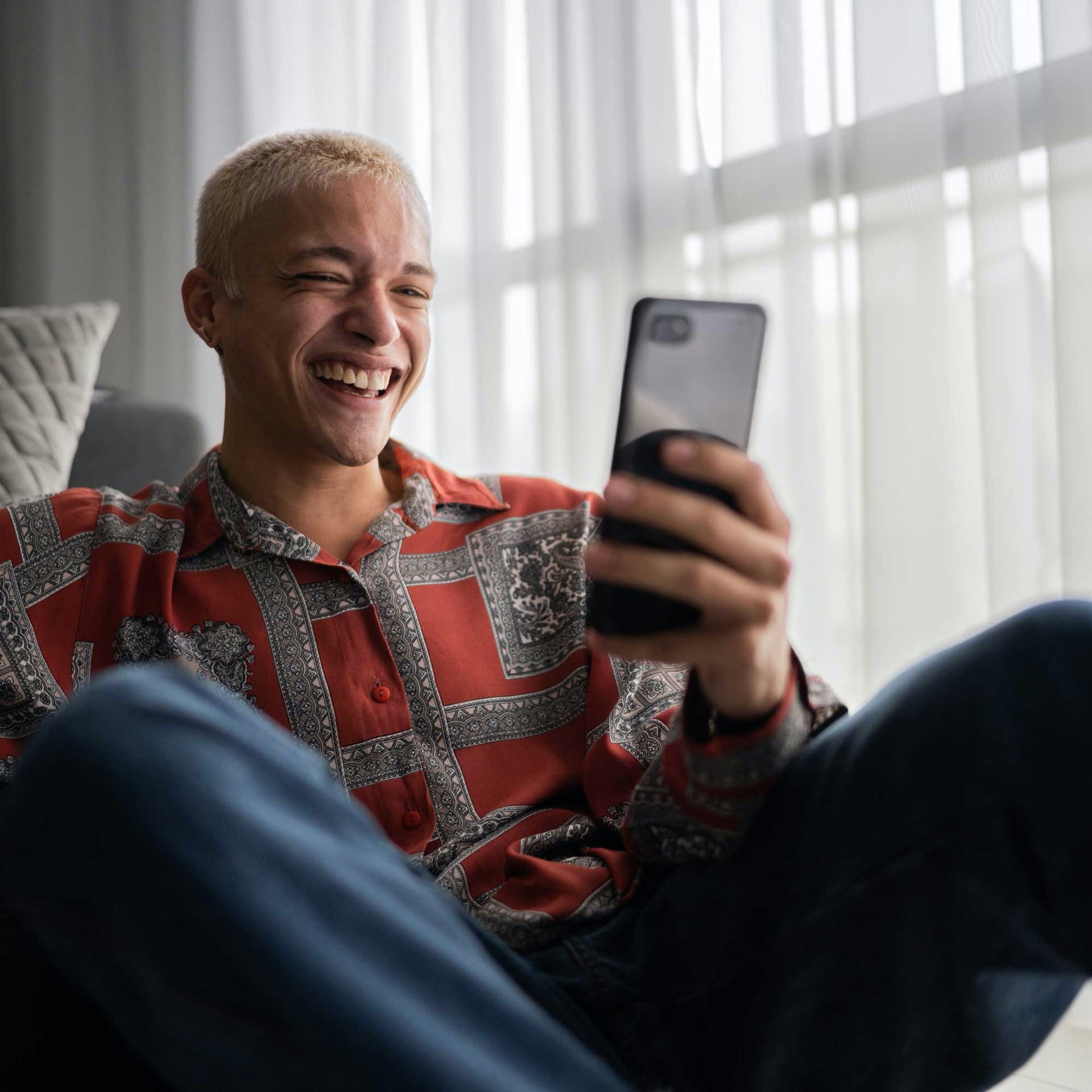Improving the health of rural gay men
Data suggests that identifying as gay increases an individual’s risk for a variety of negative health outcomes. From physical health issues like heart disease to mental health issues like depression, gay men frequently fair significantly worse than their heterosexual counterparts. Sexual preference, however, has no physical bearing on these issues; the root causes of these disparities stem from societal influences.
Just as racial minorities often experience negative health outcomes, the stress and stigma associated with identifying as LGBTQ+ are associated with these problems. While the research discussed in this article was conducted specifically with gay-identified men, health disparities are a significant problem for all LGBTQ+ populations.
Estimates about the size of the LGBTQ+ population in the United States vary significantly. 2020 was the first year when the United States census included a question about sexual orientation. Until these census data are available, no truly nationally representative measures exist of how many Americans identify as LGBTQ+ or where those individuals live.
Between the lack of solid data about the size and location of the gay population and the lack of gay community resources that could assist in recruiting for research in rural areas, the behavior of gay men in rural areas is little understood. This gap in scientific understanding inspired some Penn State researchers to work with this population.
Author
Aaron
Wagner
Improving health

Improving health through community engagement
Joshua G. Rosenberger, assistant professor of biobehavioral health at Penn State, studies the behavior of gay men in rural areas to better understand how to support these men to improve their health and well-being.
“Living in a rural area exacerbates the problems that gay men face,” Rosenberger explained. “This is primarily due to a lack of resources. Gay men living in rural areas are unlikely to have access to gay cultural organizations or to appropriate health and medical services.”
Many of the health disparities faced by all LGBTQ+ individuals are rooted in stigma and poor self-esteem, according to Rosenberger. When society stigmatizes a group of people or their behavior, their senses of self-worth and self-efficacy are damaged. This erosion of self-worth results in people being unable to achieve or ask for things they need.

Lack of community

Lack of Community
“Gay urban dwellers are much more likely to have access to ‘gay spaces’ like bars, bookstores, clubs, community groups, potlucks, and drop-in centers,” Rosenberger said. “These places and groups help people find a sense of community and belonging. This sense of community and belonging, in turn, helps protect against the health disparities faced by LGBTQ+ individuals.”
People learn about behavior and standards by participating in their community. Children learn to play and work together in the sandbox at the local park. Middle school students develop their fashion sense by reacting to how their peers dress. People learn relationship norms through talking and dating. For rural gay men, however, the lack of community spaces can lead to reduced opportunities to develop a healthy sense of themselves in the gay community and their belief in themselves.
Self-efficacy is a strong predictor of whether individuals feel confident in their ability to care for themselves in a healthy manner. Stigma erodes self-efficacy, and a sense of community and belonging can promote it.

Health care

Lack of appropriate health care
The lack of cultural resources extends to sexual health care. Research indicates that a gay man’s health can be compromised if he does not feel he can come out to his doctor. Because family history predicts risk for certain conditions, doctors routinely ask patients about their family histories. Similarly, one’s sexual behavior predicts risk for certain health problems. Doctors should be informed about their patients’ sexual behavior and health regardless of the patients’ sexual orientation, but this is uncommon among rural gay men.
Research shows that gay men are more likely to discuss sexual health with a doctor who they believe is also gay. Access to openly gay doctors, however, is rare in rural areas. Only a handful of America’s largest cities have health care practices specifically designed to serve LGBTQ+ individuals. Throughout medium-sized cities, towns, and rural areas, however, it can be difficult or impossible to identify gay doctors. This means that gay men are not having the conversations they need about their sexual health which can lead to men taking risks they do not understand or to health problems that remain undiagnosed.

Engagement

How to reach rural gay men
Rosenberger has previously partnered with tech companies to help them design products that are informed by research. Examples of this work include integration of health videos into social networking platforms that are aligned with the “look and feel” of other digital materials delivered to the userbase. By delivering content, information, and interventions within the context of websites that people already visit and apps that people use, public health resources can reach many more individuals.
For Rosenberger, this is the key to reaching rural gay men and other hidden or isolated populations. The specifics of how to do this vary from website to website or app to app, but in each case, the company or organization providing a product or service needs to take time to understand the community it serves and the public health and social issues that community is facing.
“I conduct research directly with individuals, groups, or populations that have not received much academic study,” Rosenberger said. “I want to really understand the communities. When we understand people’s behaviors and concerns, we can provide them with meaningful information or tools. This is true for gay men who live in rural areas. This is true for minoritized women who live in cities. This is true for everyone who is marginalized.
“By building people’s sense of community and belonging,” Rosenberger continued, “we can help people connect and become their own advocates. When people feel supported and advocate for themselves, they become better able to engage in healthy behaviors. This is a great time to conduct this research. The emergence of telehealth and new technologies can support gay men’s health if health providers and companies take the time to understand the people we are serving.”

Supporting LGBTQ+ pathways to parenthood
There are 400,000 children in the United States’ child welfare system each year, but in many places, potential LGBTQ+ foster and adoptive parents are rejected because of their sexual orientation. Samantha Tornello works to support prospective LGBTQ+ parents.
Photo Credits
Images:
- yacobchuk via Getty Images
- monkeybusinessimages via Getty Images
- SolStock via Getty Images
- Clinic image of doctor and two patients: hedgehog94 via Adobe Stock
- 2 images FG Trade via Getty Images
- Background image jes2ufoto via Getty Images
Author
Aaron Wagner
Discover More
Research Impact
No Results Found
The posts you requested could not be found. Try changing your module settings or create some new posts.
In the News
No Results Found
The posts you requested could not be found. Try changing your module settings or create some new posts.
Student Experience
No Results Found
The posts you requested could not be found. Try changing your module settings or create some new posts.
Health Disparities
No Results Found
The posts you requested could not be found. Try changing your module settings or create some new posts.

